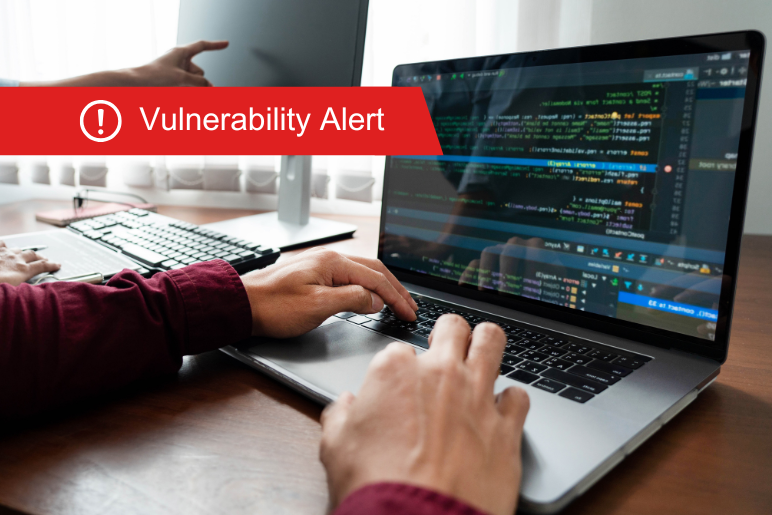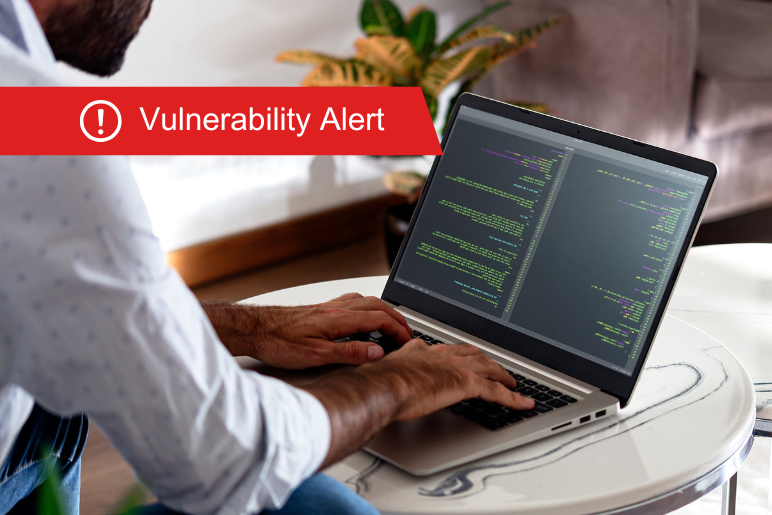
Apryse server argument injection RCE
The Stratascale Cybersecurity Research Unit (CRU) has uncovered an Argument Injection RCE vulnerability in the Apryse HTML2PDF module (CVE‑2025‑56590). Read the full advisory to stay secure.
Stratascale’s Cybersecurity Research Unit (CRU) uncovered a local privilege escalation vulnerability in Sudo (CVE-2025-32462). By exploiting the host option, attackers can gain root access on affected Linux systems. A patch is available, review your systems to stay secure.

The Sudo utility is a privileged command-line tool commonly installed on Linux systems. It allows authorized users to execute a command as the superuser, or as another user, depending on the system’s security policy. Sudo is widely used to enforce the principle of least privilege by allowing users to perform administrative tasks that require elevated permissions without sharing the root password, while also creating an audit trail in the system log.
The Stratascale Cyber Research Unit (CRU) team recently discovered two local privilege vulnerabilities in Sudo. These vulnerabilities can result in the escalation of privileges to root on the impacted system.
The research focused on infrequently used command-line options. This blog explores how the host option in Sudo can be exploited to execute commands on unauthorized hosts.
CVE-2025-32463 – Sudo chroot Elevation of Privilege Vulnerability
CVE-2025-32462 has remained unnoticed for over 12 years, despite being present in the code all along. It relies on a specific yet common configuration where Sudo rules are restricted to certain hostnames or hostname patterns. If these conditions are met, privilege escalation to root requires no exploit.
The following versions are known to be vulnerable. Note: Not all versions within the range have been tested.
Exploitation has been verified on:
CVE-2025-32462 is an issue that has been hidden in plain sight since the host option was implemented 12 years ago. Because it’s a built-in option, no exploit is needed to elevate privileges. However, the issue can only be leveraged with specific configurations using the Host or Host_Alias directives, which are commonly used in enterprise environments.
The -h (–host) option was implemented in Sudo v1.8.8, released in September 2013. This option allows users to list their Sudo rules for a host other than the current host.
Excerpt from the NEWS file:
The -h (–host) option may now be used to specify a host name. This is currently only used by the sudoers plugin in conjunction with the -l (–list) option.
The sudoers configuration provides flexible syntax to meet the technical needs of any size organization. Instead of maintaining multiple configurations for different types of hosts, a single sudoers file can be distributed across various types of Linux and UNIX systems. This is achieved by limiting rules to specific users, groups, and hosts.
For example, the following sudoers snippet shows two rules defined for the lowpriv user. This file is distributed to three servers (prod, dev, and ci). The goal is to limit access to production but allow the lowpriv user to fully manage the development environment.

Executing the Sudo list option (sudo -l) verifies that lowpriv is not allowed to run any Sudo commands on the production server as the !PROD negation directive explicitly denies it.

When a user executes Sudo, several attributes are compared to find a matching rule. If a match is found, the command is either allowed or denied. Enabling debugging through /etc/sudo.conf produces the following log entries (formatted for readability) during the evaluation of the attributes to determine if the lowpriv user is allowed to execute a command as root on the production server. Although the user matches the SERVERS Host_Alias, the request is denied because of the explicit negation of !PROD, which is the expected behavior.

The -h host, or –host=host option was designed to allow a user to list their Sudo rules for a different host. When the lowpriv user executes the list command with the host option set, the rules for the given host will be displayed. This confirms that the lowpriv user is allowed to execute all root commands on the dev.test.local server.

Reviewing the Sudo usage statement reveals that the host option is supported for non-list operations such as sudoedit (sudo -e). This behavior directly conflicts with the documentation, which states, “This is currently only used by the sudoers plugin in conjunction with the -l (–list) option.“

The Stratascale CRU team discovered that since the introduction of the host option in 2013, executing a sudo or sudoedit command with the host option referencing an unrelated remote host rule causes Sudo to treat the rule as valid for the local system. As a result, any command allowed by the remote host rule can be executed on the local machine.
Even though the production server is explicitly denied for the lowpriv user, root access is achieved by specifying the host option for the development server.

The continuous integration server (ci.test.local) can also be specified to gain full root access.

Reviewing the debug log shows that all attributes matched the ci.test.local sudo rule permitting the lowpriv user to execute /bin/bash (via sudo -i).

The initial proposed fix was shared by Todd Miller, the developer and maintainer of the Sudo project, and was verified to effectively prevent the issue by only allowing the host option to be specified for the list operation.

With the patch applied, the execution now fails with a usage error.

04/01/2025: Vulnerability report sent to Todd Miller (Sudo maintainer).
04/03/2025: Follow-up request to confirm receipt of the initial report.
04/03/2025: Report acknowledged; initial discussion began.
04/06/2025: Maintainer proposed a patch for CVE-2025-32462.
04/07/2025: Requested CVEs from MITRE.
04/08/2025: MITRE assigned CVE-2025-32462 (host option) and CVE-2025-32463 (chroot).
04/08/2025: Verified the CVE-2025-32462 patch and provided additional feedback.
04/23/2025: Follow-up request for an update.
05/06/2025: Follow-up request for an update.
05/06/2025: Maintainer responded, still working on a solution to the chroot issue.
05/07/2025: Sent feedback on the chroot issue.
05/16/2025: Follow-up request for an update.
06/04/2025: Follow-up request for an update.
06/09/2025: Maintainer proposed a patch for CVE-2025-32463.
06/10/2025: Verified the CVE-2025-32463 patch; proposed disclosure timeline.
06/23/2025: Patch sent to operating system distros list. Sudo advisory links confirmed.
06/30/2025: Public disclosure.
06/30/2025: Blog post published.
The CVE-2025-32462 Sudo Host Option Elevation of Privilege Vulnerability was discovered by Rich Mirch of the Stratascale Cyber Research Unit. The Stratascale CRU team thanks the Sudo maintainer, Todd Miller, for the partnership in resolving these issues.
Practical Guidance & Threat Intelligence
Stay a step ahead of the competition–and attackers–with fresh perspectives, practical guidance, and the latest threat intelligence.

The Stratascale Cybersecurity Research Unit (CRU) has uncovered an Argument Injection RCE vulnerability in the Apryse HTML2PDF module (CVE‑2025‑56590). Read the full advisory to stay secure.

The Stratascale Cybersecurity Research Unit (CRU) has discovered a Server-Side Request Forgery and Local File Inclusion Vulnerability in Apryse HTML2PDF module (CVE-2025-56589). Learn more to stay protected.

To strengthen threat detection and accelerate compliance efforts, tool sprawl needs to be kept under control. Here are four steps to optimize your security tools and combat technology sprawl.
